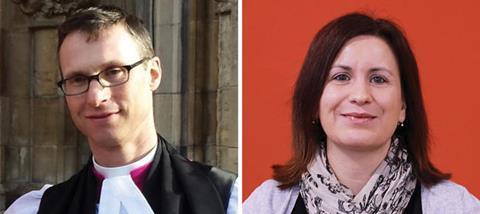Sam Hailes looks at whether Christians are in danger of neglecting the poor

The Bishop of Burnley caused a stir at New Wine this summer when he accused the Church of abandoning the poor. Rt Rev Philip North alleged the Church of England’s approach to mission is “entirely focused on the needs and aspirations of the wealthy. Rather than speaking good news to the poor, we are complicit in the abandonment of the poor”.
The Anglo-Catholic bishop added he was “astonished” at the number of people called to plant new churches in affluent areas of London.
“If you feel called to plant, we need you on the outer estates, we need you in our northern towns, we need you in areas where a majority of people come from other world faiths, we need you in those areas where the trendy coffee shops and artisanal bakers are hard to find.”
But pointing to the “thousands of ministries with a focus on the poor” including food banks, debt relief agencies and homeless shelters, Jonny Rose argued on the Premier Christianity blog that UK Christians are in fact “ignoring those at the other end of the economic spectrum”.
The super-rich are “not as en vogue as the poor”, Rose said.
Beyond social action
While there’s clearly disagreement about which socio-economic groups are most or least reached with the gospel, there is a consensus that the number of social action projects undertaken by the Church has increased dramatically in recent years.
According to the last Faith Action Audit by the Cinnamon Network, the value of the time given by the UK Church and faith groups to their communities each year is worth £3bn.
Natalie Williams, co-author of A Church for the Poor (David C Cook), is upbeat about this development. “Churches of all denominations have stepped up and said ‘where poverty is an issue we will get off our backsides and do something’,” she says.
“If churches shut down all their projects that help people in poverty, the country would be plunged into a phenomenal crisis.”
But Williams is concerned that churches might “inadvertently exclude people” of other backgrounds.
“We had someone become a Christian on the Alpha course in my church last year. And the guy who prayed with him said, ‘The next thing you must do is read your Bible.’ I knew the guy couldn’t read so I quickly said, ‘Oh, you can get it on audio as well.’ I didn’t want to embarrass him and say, ‘I know you can’t read.’ But if I hadn’t been there, that person would have been told the next thing you must do is something you can’t do.”
She also questions whether lengthy sermons are accessible for the average person in the pew.
“Where else do we listen to 40-minute talks? University? Well, 81 per cent of practising Christians in this country have a university degree, compared to 27 per cent of the national average.
“That’s 73 per cent of the population who aren’t as familiar as us with sitting down and listening to someone talk for 40 minutes. It’s unreasonable to expect someone to be able to sit there, sit still and take it all in.”
Culture shock
Williams is from a working class background and explains that according to the government’s definition of the term, she grew up in “relative poverty”. After becoming a Christian aged 15 she found herself in a “fairly middle class church” in Hastings - one of the most deprived areas in Britain. It was there she encountering behaviours and expectations which felt alien.
“I had to start copying other people and learning socially acceptable ways to behave,” she recalls.
“A lot of these things are unspoken – going to dinner at other people’s houses and not having a clue how you were supposed to serve yourself food when there’s meat in one dish, vegetables in another and potatoes in another. I’d never eaten food like that. They’d always say, ‘You go first because you’re the guest.’ My heart would sink and I’d feel strong anxiety, thinking, ‘I don’t know what to do – are you supposed to take them in a particular order or a particular quantity?’ I had no idea.
“I went to India last year and the culture shock of going there was nothing compared to the culture shock of me going from a working class background into a middle class church.”
UK Poverty
13.5 million people in the UK live in relative poverty
25% of children in England live in poverty
23% of adults have no academic, vocational or professional qualifications
Source: Church Urban Fund
Is saving money biblical?
Now working at Jubilee+ (a charity which was birthed out of the Newfrontiers network to help churches “champion the poor”) Williams wants to help Christians “build bridges” between their social action projects and church life in general.
She explains that those from less privileged backgrounds might become Christians and join local churches, but tend to “slip out and drift away” after six months, partly because they’ve encountered a culture they feel excluded from.
Williams also wants to challenge churches to ask whether their values are truly biblical, or are based on class and culture.
“Sometimes people from poorer backgrounds get into church and we encourage them to move to a nicer area, put their kids in a nicer school and save money.
“Saving money is good to a point but the Bible does tell us not to hoard our wealth. Saving large amounts of money is a very middle class thing to do. I’m not sure it’s that biblical.
Christianity has been allowed to become very comfortable
“When I say that to people I see this discomfort spread! Of course I feel better when I have a few thousand pounds in the bank, but I’m not sure that God is calling me to save a few thousand pounds.”
Addicted to comfort?
If it's true that much of the UK Church is dominated by the middle classes, what effect might this have already had on the way the average Christian thinks about wealth? Williams’ answer is challenging.
“In Britain, Christianity over the last few decades has been allowed to become very comfortable. We might be, if we’re really honest, a little too addicted to our own comfort.
“I said to some friends when I was buying my first flat nine months ago – I feel really challenged by God to make sure I don’t just acquire stuff but still give money away. My three friends all rushed in with, ‘Oh, it’s OK for you to have nice stuff…God does want you to have nice stuff.’
“I think there’s a danger we’ve got so used to comfortable Christianity which doesn’t really cost us a lot, that our default setting is now to encourage each other into comfort rather than radical generosity, radical mercy and radical sacrifice.”






































No comments yet